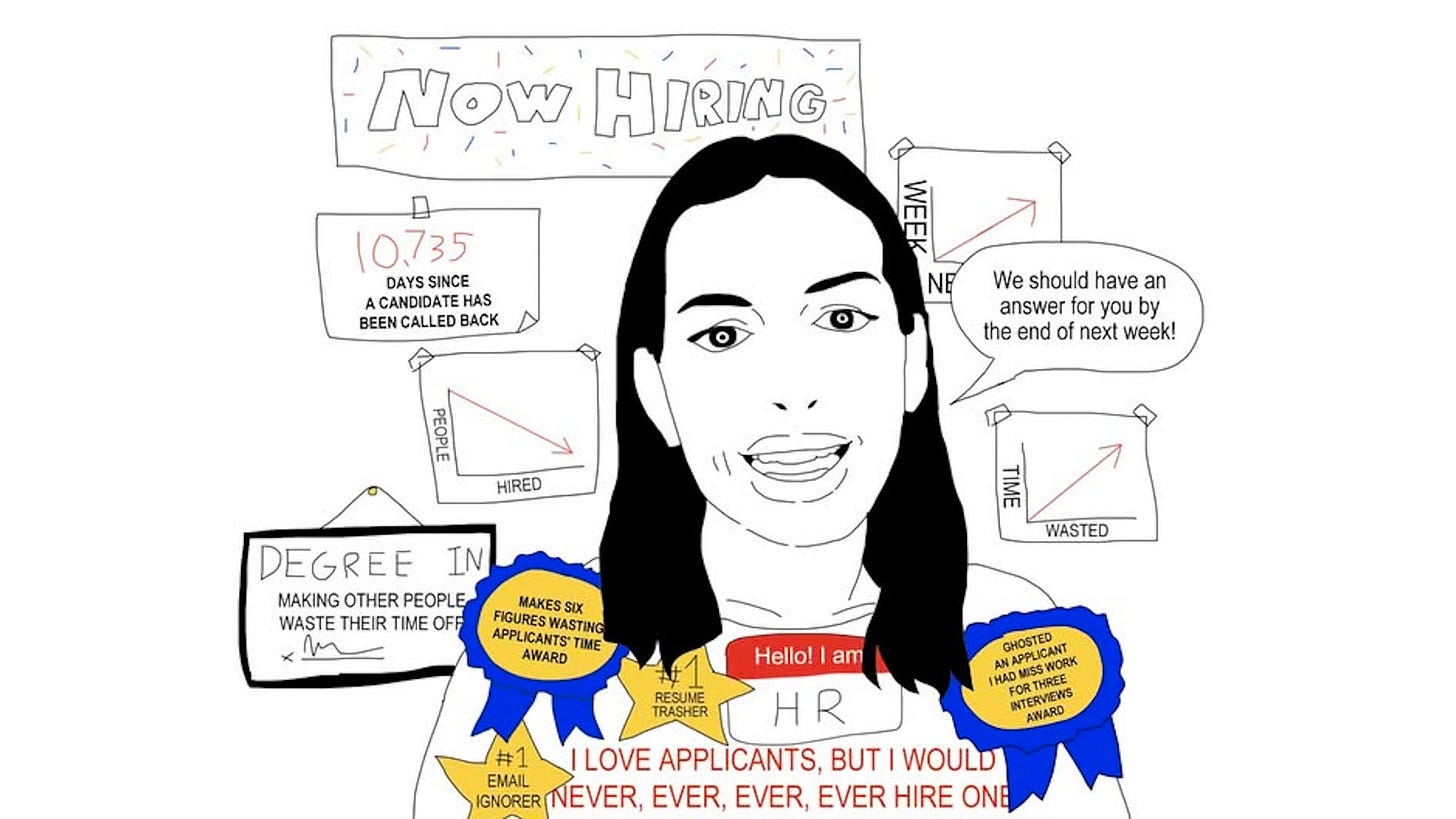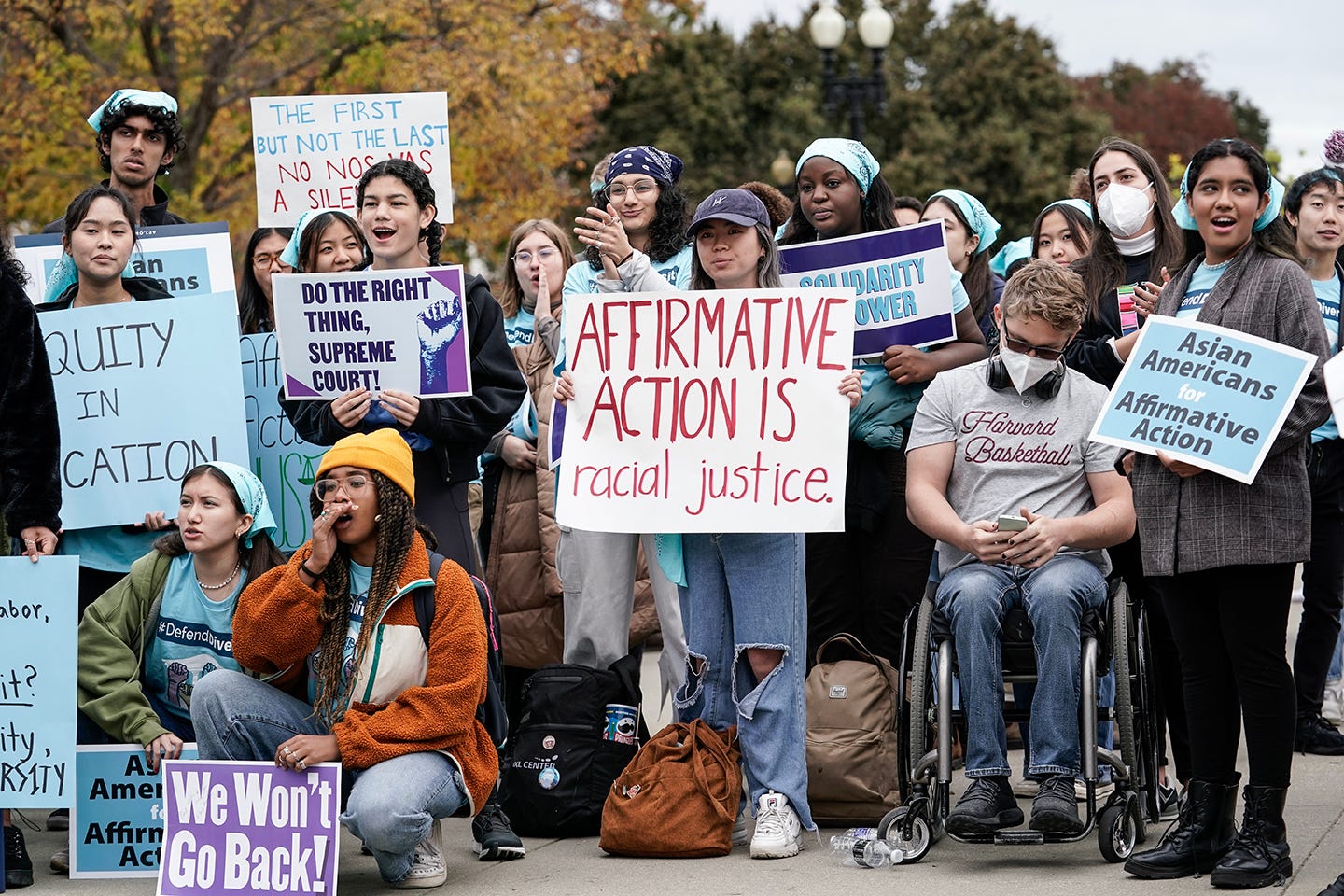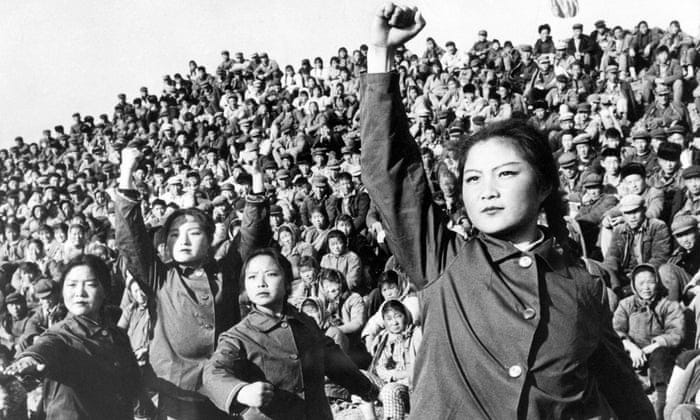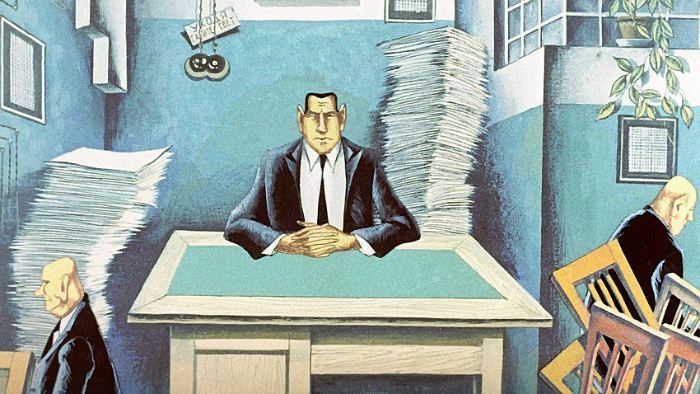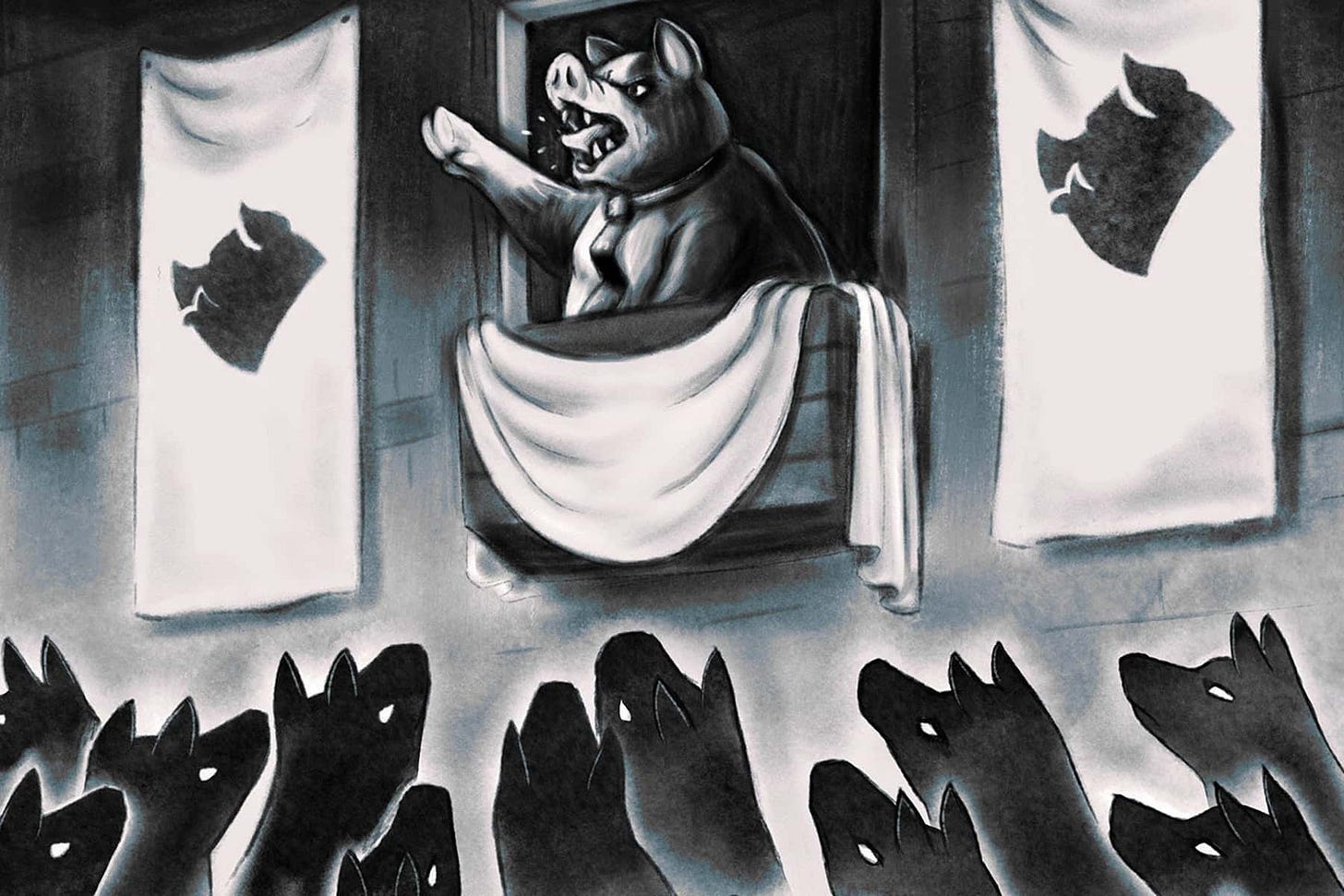Why the West Feels Like It’s Run by HR
Our leaders don’t lead — they manage, scold, and moralize. A civilization built by risk-takers and builders is now ruled by bureaucrats obsessed with “safety,” “equity,” and “inclusion.”
When Corruption and Delusion Becomes Civilization’s Breaking Point
Everyone feels that something fundamental has broken. The economy grows, yet life feels smaller. Wages stagnate while assets soar beyond reach. Laws change, leaders change, and yet the same people — the same class of people — remain in charge. No matter who you vote for, the bureaucracy stays. No matter how many crises they cause, the architects of failure are promoted upward.
Most people sense this rigging on a personal level: the job that goes to a less qualified but more “connected” candidate, the small business strangled by regulations written for international corporations, the endless propaganda about “progress” from governments that allow crime to takeover it’s nation. But the real danger is far larger than economic frustration or political fatigue. This is what civilizational decay looks like.
James Burnham understood that civilizations collapse not when the poor grow restless, but when the ruling class becomes stagnant. When corruption and ideological capture reach a critical degree within a nation’s elite, reform becomes impossible — and social revolution becomes inevitable. History shows this pattern again and again: an elite class gains wealth and influence through genuine skill and courage; then, over generations, it degenerates into a self-protecting caste more concerned with preserving status than fulfilling duty. Once that happens, institutions crumble from within, and the civilization begins to rot.
The West is entering that stage. Our elites no longer build; they administer. They no longer lead; they perform. And when the top of a society stops earning its authority, the bottom eventually stops believing in the system itself. Civilizations don’t fall because ordinary people stop caring — they fall because their elites stop deserving to rule.
How DEI and Affirmative Action Killed Elite Circulation
James Burnham drew heavily on the work of Italian sociologist Vilfredo Pareto, who observed that every society is ruled by a minority — an élite — and that the health of a civilization depends on whether this ruling class renews itself through talent or protects itself through loyalty. When an elite remains open to new competence, the nation thrives. When it closes itself off, when entrance is determined by ideology or inheritance instead of ability, the system begins to suffocate.
The modern West is deep in that suffocation. For decades, our institutions have replaced meritocracy with ideological conformity. What used to be the natural “circulation of elites” — a constant flow of talent rising through business, science, politics, and the arts — has hardened into a bureaucracy where advancement depends less on achievement than on alignment. And the official justification for this regression has been “equity,” “diversity,” and “representation.”
DEI and affirmative action were sold as tools for fairness, but they’ve become mechanisms for control — loyalty tests masquerading as justice. In practice, they allow mediocrity to climb while silencing dissent from those competent enough to notice. The university that once sought truth now rewards obedience. The corporation that once prized efficiency now worships optics. The public office once earned through respect is now a showcase for ideological symbolism.
We’ve seen this before. Mao Zedong’s China purged “class enemies” from education and replaced them with ideologically pure loyalists. Stalin’s Soviet Union elevated political reliability over technical expertise, wrecking agriculture and industry. Hitler’s Germany replaced competence with racial conformity, cleansing universities, businesses, and civil service of anyone deemed politically or ethnically suspect. In each case, the result was the same: collapse, paranoia, and mass suffering disguised as moral righteousness.
The West’s new elites are making the same mistake. Where Mao once unleashed Red Guards to hunt ideological heretics, ours unleash HR departments, activist mobs, and DEI bureaucrats. Different uniforms, same crusade. They don’t build or improve — they purge and intimidate. They select not for skill but for ideological obedience, enforcing conformity through the soft language of morality: “inclusion,” “safety,” “equity.” Behind those words lies the same instinct that drove every cultural revolution — the will to cleanse, to control, and to make fear look like virtue.
Pareto warned that when elites close the gates, pressure builds beneath them. The talented and ambitious, blocked from rising through legitimate means, begin to seek illegitimate ones. That’s when history shifts from reform to revolution. We are approaching that threshold again. A civilization that rewards obedience over excellence is not just unfair — it is doomed.
The Ritual of Democracy
James Burnham’s most sobering insight was that all human organizations, no matter how democratic they appear, are ruled by a few. He called this the iron law of oligarchy. There will always be leaders and followers, governors and governed. The question isn’t whether a ruling class exists — it always will — but whether that ruling class is competent and accountable.
Modern Western democracies still perform the rituals of self-government: elections, debates, news panels, and patriotic slogans about “the people’s will.” But beneath the ceremony, power has become both more centralized and more opaque. Unelected networks of bureaucrats, corporate executives, think tanks, NGOs, and central bankers now shape policy with minimal public oversight. The political class serves mostly as the face of decisions made elsewhere — the elected actors in a play written by unseen directors.
You can see it in the seamless continuity of policy no matter who’s in office. Central banks dictate the economy regardless of party. Immigration and trade policies remain identical under “opposite” governments. The permanent administrative state — the regulators, intelligence agencies, and public-sector unions — operates as if it were sovereign. Politicians rotate through these institutions the way actors change costumes, while the system itself never changes direction.
The illusion of popular control is maintained through language. Citizens are told “you are the democracy,” even as their ability to influence anything meaningful shrinks. Protesters are corralled into “free speech zones.” Dissent is treated as extremism. “Public consultations” are theatre. Voting becomes a moral ritual rather than a mechanism of change — a symbolic act that renews the legitimacy of an unchanging hierarchy.
This isn’t an argument against leadership or hierarchy. Burnham — and Pareto before him — understood that elites are inevitable, even necessary. Civilization itself requires coordination, expertise, and authority. The problem isn’t that we have a ruling class; it’s that ours has lost both true virtue and competence. They rule, not because they deserve to, but because no one else is allowed to.
A functioning democracy depends not on abolishing elites, but on circulating them — replacing the decadent with the capable. In healthy societies, leaders rise because they solve problems. In sick ones, they rise because they know the right slogans. Ours is the latter. The West doesn’t need fewer elites — it needs better ones: leaders who see power not as performance, but as responsibility.
The Triumph of the Bureaucratic Fox
Vilfredo Pareto divided the ruling class into two archetypes: Foxes and Lions. Foxes are cunning manipulators — persuasive, adaptive, and skilled in the art of deceit. Lions are forceful traditionalists — strong-willed defenders of order, faith, and continuity. In a healthy civilization, these two instincts balance one another: the intellect of the Fox guided by the courage of the Lion. But when either type dominates absolutely, decline begins.
The modern West is ruled almost entirely by Foxes. Every institution — from government to media to education — now speaks in the language of manipulation. Strength and conviction have been replaced by performance and perception. Policies are crafted not to solve problems, but to signal virtue. Wars are launched under the banner of “human rights.” Censorship is rebranded as “safety.” Economic destruction is excused as “equity.”
These are the traits of the Fox — the bureaucrat who rules through words rather than deeds, who values consensus over courage, and who believes that reality can be managed through messaging. Our politics no longer rewards those who build or protect, but those who narrate. Every crisis becomes a branding exercise. Every failure is explained away by another press release.
Meanwhile, the Lions — the practical, the courageous, the builders and defenders — have been sidelined or demoralized. The working class that once powered nations has been told it’s obsolete. Men and women who value duty and tradition are mocked as reactionary. The spirit of sacrifice has been replaced with the pursuit of comfort. Our society feels like it’s run by an HR department because, in essence, it is: a bureaucratic priesthood of Foxes endlessly managing emotion and image while producing nothing of substance.
A civilization can survive deceit for a time, but not cowardice. Foxes can manipulate, but they cannot defend. And when a civilization becomes governed entirely by clever men without courage, its fate is sealed. The West’s elites have mastered every form of spin — yet forgotten how to stand for anything at all.
Freedom Through Conflict, Not Unity
James Burnham understood what modern politics has forgotten: freedom is not born of harmony, but of conflict. Liberty survives only when opposing forces balance and restrain one another—when institutions, classes, and ideas are allowed to collide. Tyranny, by contrast, emerges whenever one ideology, one class, or one “moral truth” dominates without resistance.



